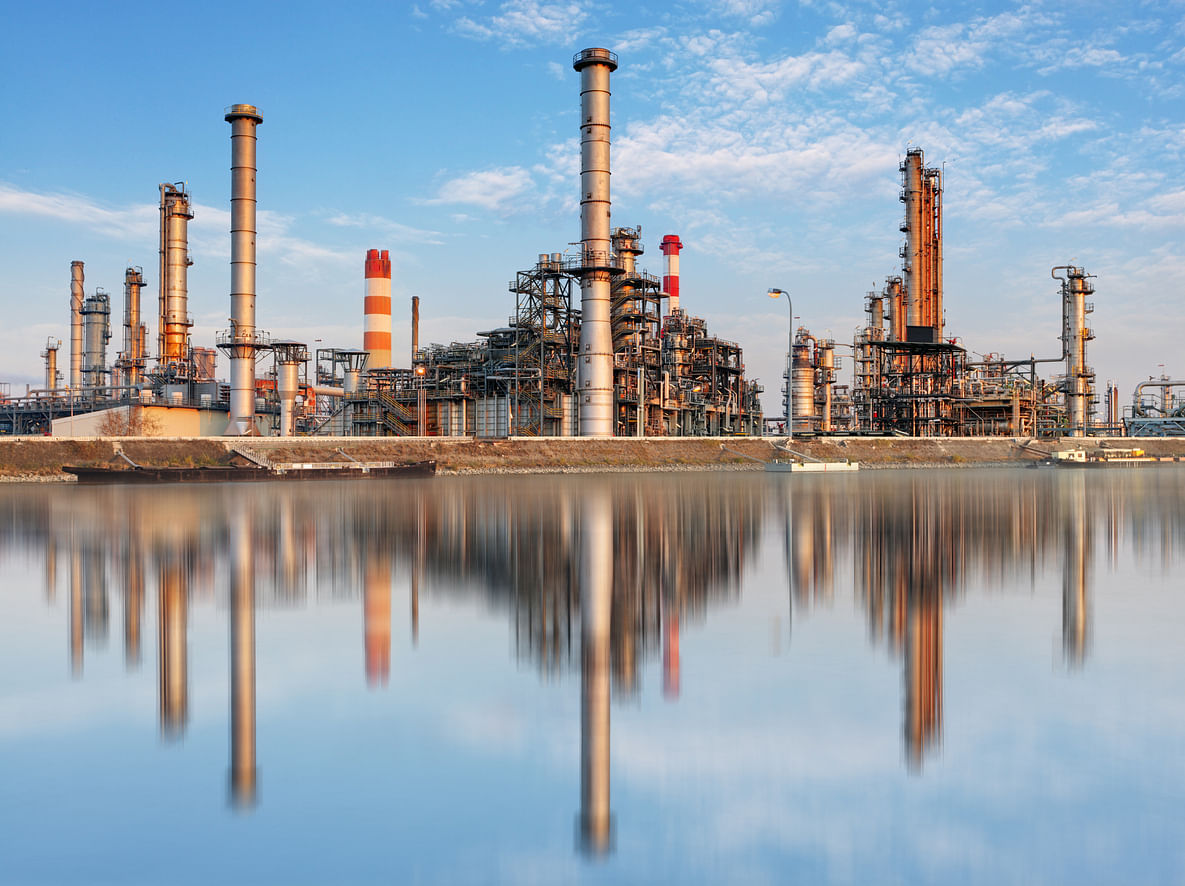
Weeks after the coronavirus lockdown led to fuel sales nosediving to record lows, Indian Oil Corp (IOC), the nation's largest oil firm, sees demand returning with the resumption of economic activities.
The company said though it is on track to spend the approved capital expenditure for 2020-21, it has "critically examined all CAPEX proposals for rationalisation of cost and time frame."
"The company is also conscious of the costs and has also undertaken rationalisation measures in this direction," it said without giving details.
Fuel sales had dropped in April after Prime Minister Narendra Modi announced a nationwide lockdown to control the spread of COVID-19 infections. The lockdown shut factories and offices took most vehicles off roads, stopped train movement, and suspended air travel.
"The demand for petroleum products dropped by 46 per cent in April 2020. The sales of petrol, diesel and jet fuel (ATF) in April 2020 were down by 61 per cent, 56.7 per cent and 91.5 per cent respectively as compared to April 2019," it said in a regulatory filing on the impact of COVID-19.
Due to certain relaxations by the Centre and some state governments starting last month, sales for the products improved in May as compared to April 2020. "However, the sale for these three products was still lower by 38.9 per cent as compared to May 2019."
India will see more opening up from June 8 with malls and markets resuming operations.
"It is expected that with the opening up of lockdown and revival of the economy on the strength of the economic package, the sales would soon get revived," it said. "Further, the recent increase in international prices of crude oil and petroleum products, as well as rupee appreciation, has to some extent already offset the inventory losses and forex losses."
IOC said though there was no closure of any of its refineries due to a drop in demand for petroleum products, their operations were curtailed to the level of 39 per cent in April.
However, the improved demand for petroleum products in May 2020 resulted in higher capacity utilisation of refineries to the extent of 75-80 per cent and is further being ramped up.
"The drop in the sale of petroleum products resulted in a significant fall in revenue collections for the company. In order to meet its contractual and statutory obligations, the company had to borrow funds which resulted in a substantial increase in borrowings.
"However, since then the borrowings have reduced significantly with the increase in sales and lower crude oil prices," it said, but did not give specific figures.
Stating that COVID-19 had severely impacted businesses across the world, IOC said the oil industry in general and the company, in particular, came under the twin assault of drop in crude oil prices as well as demand destruction.
The government announced the nationwide lockdown in the last week of the financial year 2019-20 (April 2019 to March 2020) and therefore it did not have a significant impact on sales and operations for the fiscal.
Petroleum product sales had witnessed a demand growth of 1.9 per cent in 2019-20 till February 2020.
"However, the same declined by 18 per cent in March 2020 due to the lockdown, dragging down the growth for the full year to 0.22 per cent," it said.
COVID-19 impacted the crude oil and product prices across the world, which saw a significant fall by March 31, 2020.
"The company being the largest PSU oil marketing company in the country having its refineries and marketing infrastructure spread across the country, maintains a significant level of inventories for its operations.
"The drop in the prices of crude oil and products impacted the financial statements for 2019-20, due to inventory loss," it said, adding the financial statements for 2019-20 are presently under finalisation.
IOC said to manage the crude oil inventory, planned crude import was either deferred or cancelled with mutual consent. "Some crude cargoes meant for our refineries were even sold for the Strategic Petroleum Reserves of the Government of India."
With all domestic and international flights being suspended, civil aviation business was badly affected, it said.
"The situation has been closely monitored by the top management of the company on daily basis since the price crash and subsequent lockdown, to take prompt actions for continuity of business operations in an optimised manner, keeping the market well supplied as well as to ensure safety of the employees and frontline personnel engaged in production/delivery of petroleum products," IOC added.